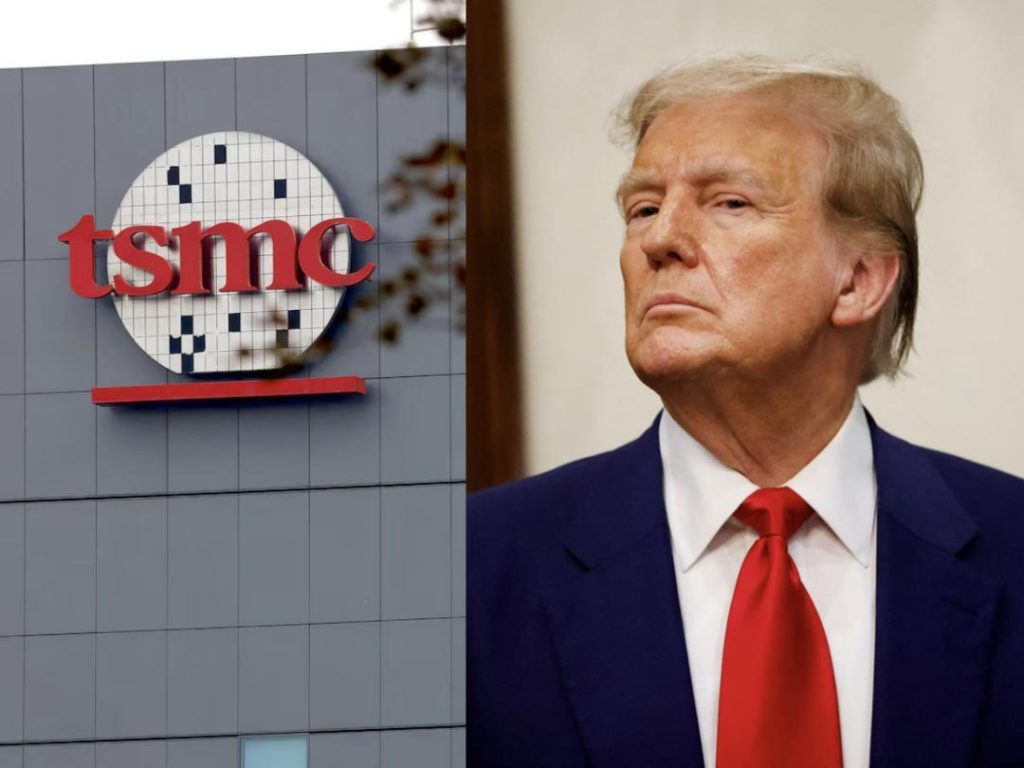
TSMC Hits Back at US After 100% Tariff Threat, Warns US Investments May Take a Hit
In a bold move, Taiwan Semiconductor Manufacturing Company (TSMC), the world’s largest independent semiconductor foundry, has warned the US government that any future tariffs on Taiwanese chips could have far-reaching consequences, including a potential reduction in demand for chips and a negative impact on its pledge to increase investments in the US.
The warning comes as a response to US President Donald Trump’s threat to impose up to 100% tariffs on Taiwanese chips if TSMC does not build its chip plants in the US. The threat is seen as a ploy to force TSMC to shift its production base to the US, a move that could significantly benefit the US economy.
However, TSMC has made it clear that it will not be bullied into making such a move, and has instead warned the US government that any tariffs imposed on its chips could have unintended consequences. In a statement, the company said, “If the US imposes tariffs on our chips, it could lead to a reduction in demand for our products, which could in turn affect our ability to increase our investments in the US.”
TSMC’s warning is not an empty threat. The company has already committed to investing $165 billion in a new chip plant in Arizona, a move that is expected to create thousands of jobs and boost the local economy. However, if the US imposes tariffs on TSMC’s chips, it could reduce the demand for those chips, making it harder for the company to recover its investment.
The threat of tariffs has also raised concerns about the potential impact on the global supply chain. TSMC is a key supplier of chips to many major tech companies, including Apple, Qualcomm, and NVIDIA. If the US imposes tariffs on TSMC’s chips, it could lead to a shortage of chips, which could have a ripple effect on the entire tech industry.
TSMC’s warning has also sparked concerns about the potential impact on the US-China trade war. The Trump administration has been seeking to reduce the US trade deficit with China, and has imposed tariffs on billions of dollars’ worth of Chinese goods. However, the threat of tariffs on Taiwanese chips could have the opposite effect, as it could lead to a reduction in US exports to China and a widening of the trade deficit.
The US government has been seeking to lure TSMC to the US by offering it financial incentives and tax breaks. However, TSMC has been hesitant to make a move, citing concerns about the availability of skilled workers and the high cost of setting up a new plant in the US.
In a statement, TSMC said, “We are committed to investing in the US, but we need a stable and predictable business environment. We cannot make investment decisions based on threats or tariffs.”
The dispute highlights the complex and often contentious relationship between the US and Taiwan, which is a key player in the global tech industry. The US has been seeking to strengthen its ties with Taiwan, which is seen as a key ally in the region. However, the Trump administration has also been critical of Taiwan’s trade practices, including its alleged subsidies to its semiconductor industry.
The news has sent shockwaves through the tech industry, with many analysts warning of a potential shortage of chips and a negative impact on the global economy. The dispute has also raised concerns about the potential impact on the US-China trade war, which has been ongoing for months.
In conclusion, the dispute between TSMC and the US government highlights the complex and often contentious relationship between the two countries. While the US government is seeking to lure TSMC to the US by offering it financial incentives and tax breaks, TSMC is warning of the potential consequences of imposing tariffs on its chips. The dispute is a reminder of the complex and often unpredictable nature of international trade, and the need for both countries to work together to find a solution that benefits all parties involved.




